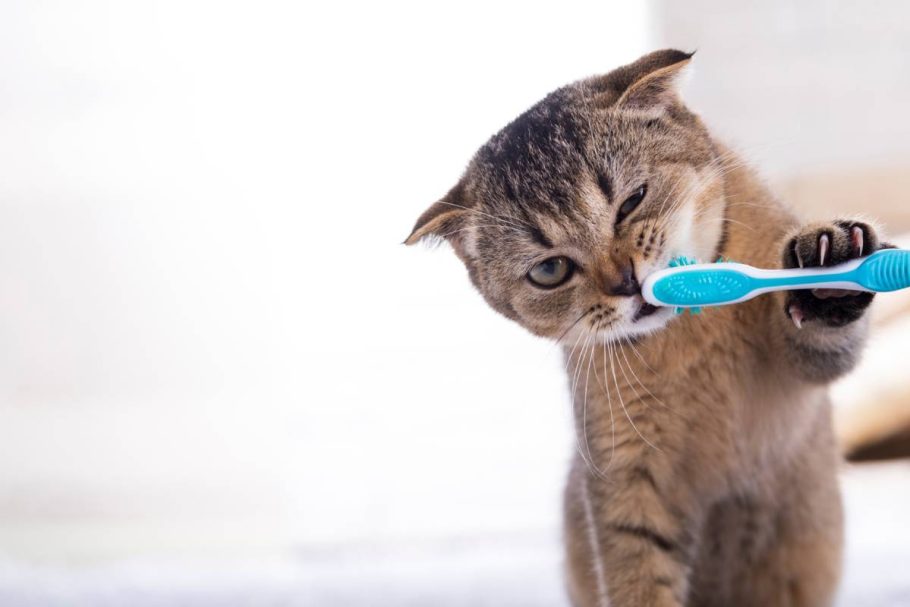Cat Oral Health Care: Care for teeth and gums, brushing methods, oral health-friendly food, and natural ways to maintain a fresh mouth hygiene.
As a cat owner, you may be focused on keeping your feline friend happy and healthy, but there’s one often overlooked aspect of their well being: their oral hygiene. Just like us, cats can suffer from dental problems that affect their overall health.
Bad breath, gum disease, and even tooth loss can stem from poor oral care, leading to discomfort and more serious health issues.
Fortunately, with the right practices and care, you can help keep your cat’s teeth and gums healthy for years to come.
In this article, we’ll explore the best oral hygiene practices for cats what you can feed them to improve their breath, and natural methods to keep their mouths clean and fresh.
The Importance of Oral Hygiene for Cats
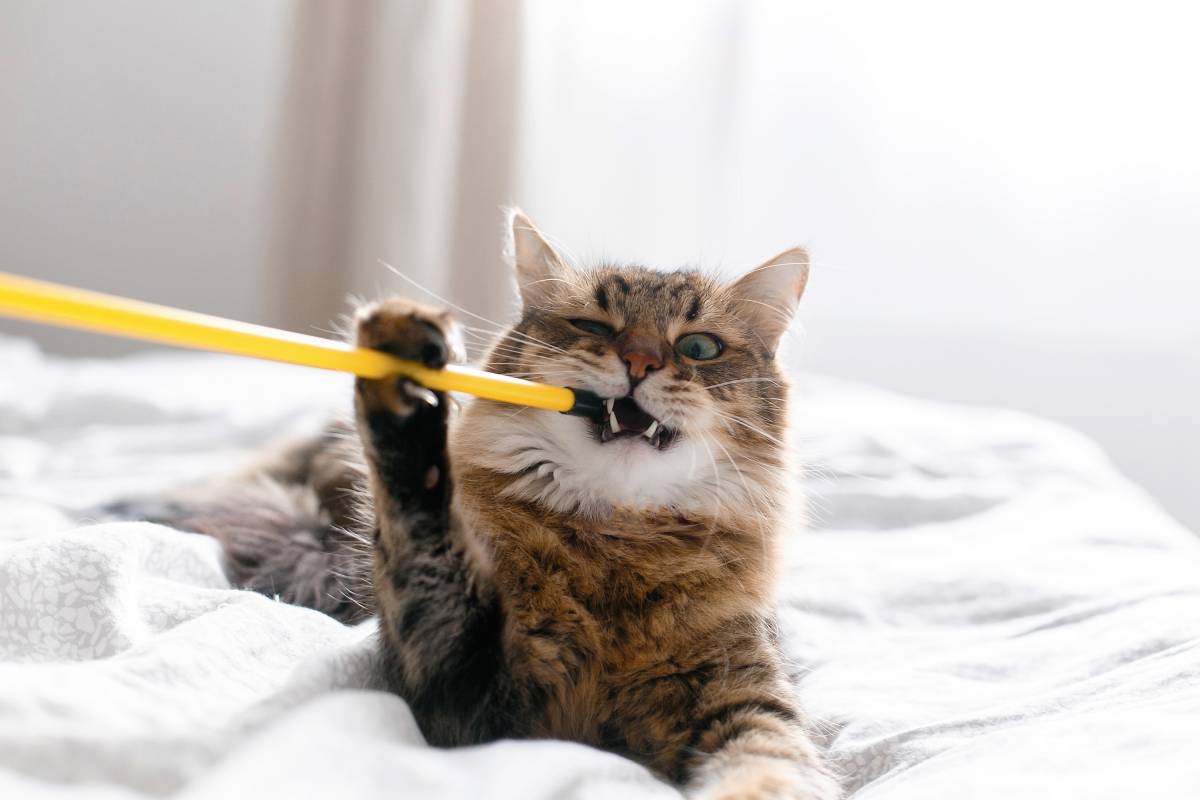
Oral health is crucial for cats but often overlooked by pet owners. Dental issues can cause pain, bad breath, difficulty eating, and lead to infections that affect the entire body.
Cats especially those over three are susceptible to periodontal disease a bacterial infection that damages gums and teeth.
This condition can result in gum recession, tooth loss, abscesses, and even spread to vital organs like the kidneys and heart. Preventing these problems requires regular care of your cat’s dental hygiene.
Best Oral Hygiene Practices for Cats
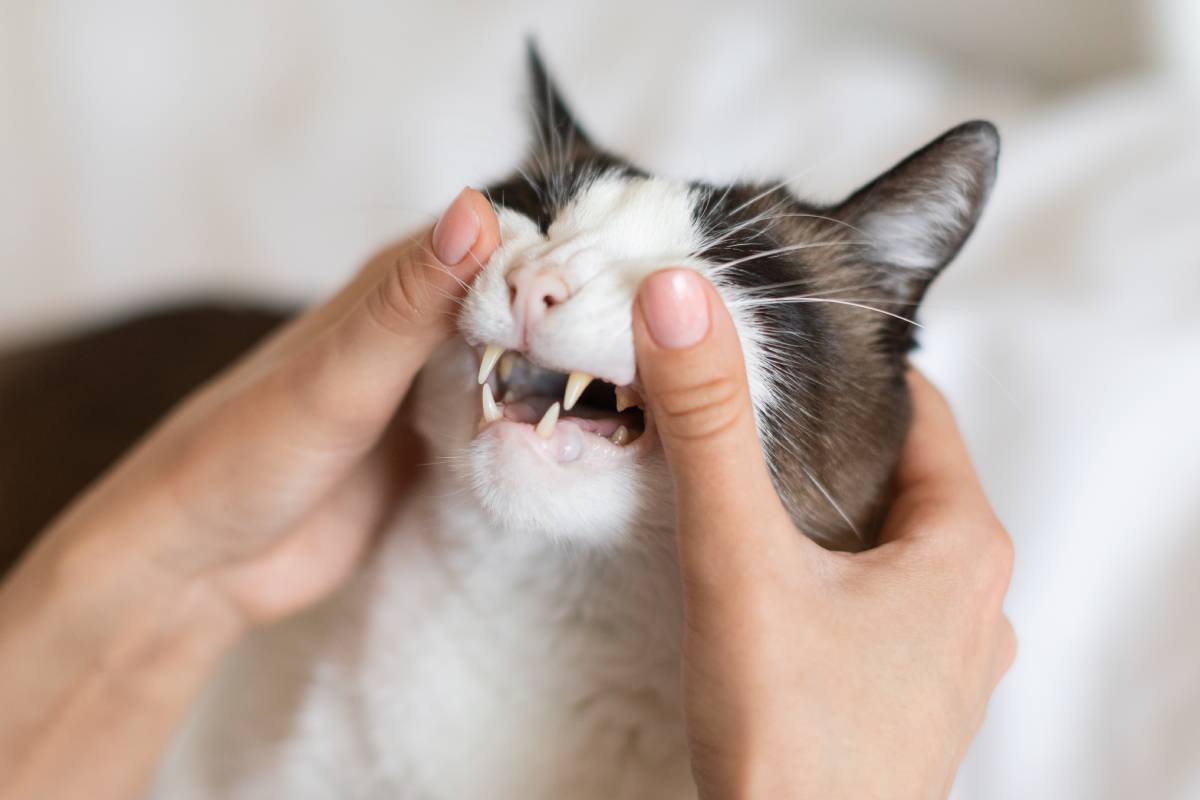
1. Brushing Your Cat’s Teeth
The best way to maintain oral hygiene for cats is by brushing their teeth regularly. Just like human teeth, brushing helps remove plaque and prevents the buildup of tartar. Plaque buildup leads to bacterial growth, which can result in gum disease and tooth decay.
How to Brush Your Cat’s Teeth:
- Start slowly. If your cat isn’t used to having their teeth brushed, begin by letting them get familiar with the toothbrush. You can use your finger or a pet-friendly finger brush to gently massage their gums to get them used to the sensation.
- Use cat specific toothpaste. Never use human toothpaste on your cat, as it contains ingredients that can be harmful to them if swallowed. You can find specially formulated toothpaste for cats in various flavors, such as poultry or seafood, to make brushing more appealing.
- Be patient and consistent. Aim to brush your cat’s teeth at least three times a week. If daily brushing is possible, it is even better. You don’t need to brush every tooth, but make sure you target the back teeth where plaque tends to accumulate.
2. Dental Chews and Treats
Dental chews and treats are great for supporting your cat’s oral hygiene between brushings. They help reduce plaque buildup and freshen breath by scrubbing teeth and gums.
Choose treats formulated for dental health and check the packaging for safety based on your cat’s size and age.
Some treats have special textures that assist in plaque removal, making them ideal for cats that dislike having their teeth brushed.
3. Cat-Specific Mouthwashes and Sprays
If brushing is not an option or you need additional help, there are dental sprays and mouthwashes designed for cats.
These products contain antibacterial ingredients that help fight plaque and freshen your cat’s breath. Simply apply the spray or add the solution to their water bowl according to the product’s instructions.
It’s essential to ensure that the mouthwash is safe for pets and doesn’t contain harmful chemicals or alcohol, which can be toxic to cats.
4. Regular Veterinary Checkups
Just like humans, cats should see a professional regularly for checkups, including dental examinations.
Your vet will be able to detect any early signs of dental disease, tartar buildup, or other oral health issues before they become more serious problems.
Routine professional cleanings may be recommended by your vet, especially if your cat has significant plaque buildup that cannot be removed with home care.
What Can I Feed My Cat to Make His Breath Smell Better?
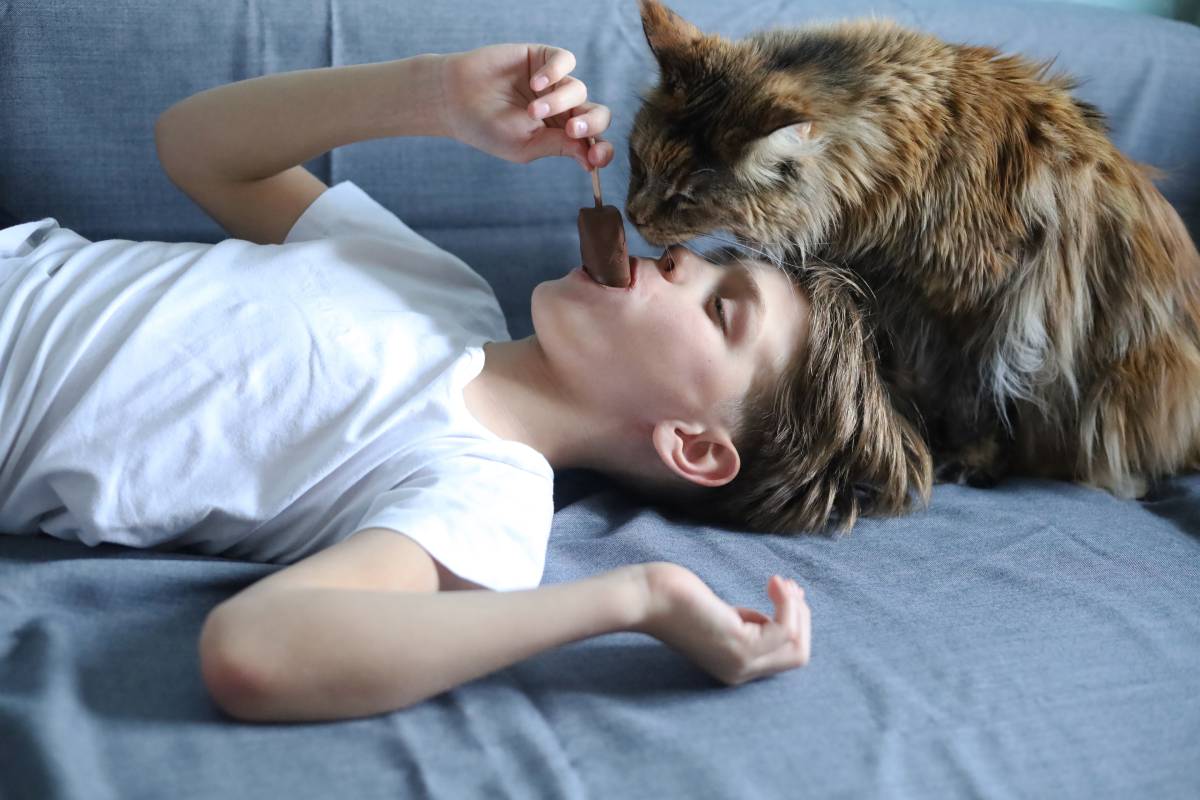
Diet plays a significant role in your cat’s oral health and breath. The food your cat eats can contribute to plaque buildup and overall oral hygiene. Certain foods can also help freshen your cat’s breath and keep their teeth cleaner.
1. Dry Food vs. Wet Food
The texture of your cat’s food affects their oral hygiene. Dry food’s crunchiness can help reduce plaque buildup, but it can’t replace proper brushing, as it may not reach all areas of the teeth.
Wet food while beneficial for hydration and cats with dental issues, tends to stick to teeth, promoting plaque buildup. To maintain good oral health, complement wet food with regular dental care.
2. Dental-Specific Food
Many cat food brands have specific formulas designed to improve oral health. These foods often contain special ingredients or textures that help reduce plaque buildup and some brands offer food with enzymes that target bacteria and prevent gum disease.
If you’re unsure which food is best for your cat, consult your veterinarian for recommendations based on your cat’s specific dental needs.
3. Raw Meat and Bones
Some pet owners choose to feed their cats a raw food diet that includes raw meat and bones. Raw bones can help scrape plaque off teeth but this should be done with caution.
Cooked bones should never be fed to cats, as they can splinter and cause choking or injury. If you’re considering a raw food diet for your cat, speak with your veterinarian first to ensure it’s appropriate for your cat’s health and nutritional needs.
How Can I Clean My Cat’s Mouth Naturally?
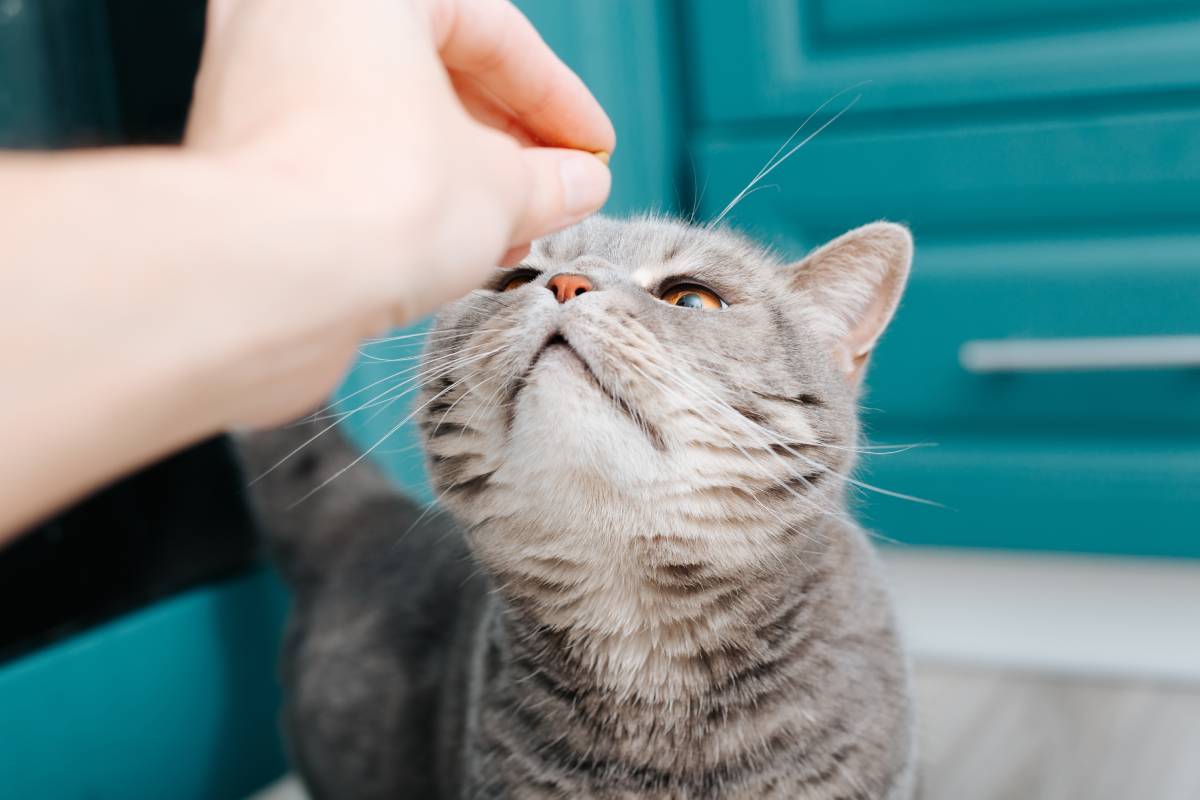
If you prefer natural remedies for cleaning your cat’s mouth, there are several options that can help reduce plaque buildup and freshen your cat’s breath without relying on commercial products.
1. Coconut Oil
Coconut oil has natural antibacterial properties and can help reduce plaque and freshen breath. Some pet owners use coconut oil as a natural toothpaste substitute.
You can rub a small amount of coconut oil onto your cat’s gums and teeth, or you can mix it into their food for an added benefit.
However, it’s essential to use coconut oil in moderation, as it is calorie-dense and can cause digestive issues if given in large amounts.
2. Herbal Remedies
Certain herbs, such as parsley, peppermint, and fennel, are known for their breath-freshening properties. You can add small amounts of these herbs to your cat’s food to help combat bad breath naturally.
Additionally, chamomile tea can help soothe gums and has mild antibacterial properties. Allow the tea to cool and offer it to your cat in small amounts.
3. Water Additives
Natural water additives are available that can help reduce plaque buildup and freshen breath.
These additives are typically made from natural ingredients such as parsley or chlorophyll. They are added to your cat’s drinking water and can help promote oral hygiene between brushings.
Always ensure that the water additive is safe for cats and doesn’t contain harmful ingredients.
How Fleas Affect Your Cat’s Overall Health
Fleas can lead to itching and irritation, which might distract your cat from maintaining their grooming habits including brushing their teeth.
In extreme cases flare treated stress or flea allergy dermatitis may worsen overall health and make it harder for your cat to take care of themselves properly.
Regular flea control is essential for reducing these impacts, and keeping your cat flea-free ensures they stay comfortable and more likely to maintain their oral hygiene habits.
Conclusion
Maintaining your cat’s oral hygiene is essential for their overall health. Regular brushing dental chews and professional veterinary checkups are the best ways to ensure your cat’s teeth and gums stay healthy.
Additionally, feeding your cat a diet that promotes oral health and using natural remedies like coconut oil or herbal treatments can help freshen their breath and reduce plaque buildup.
By incorporating these practices into your cat’s routine, you’ll not only help prevent dental issues but also improve their quality of life.

